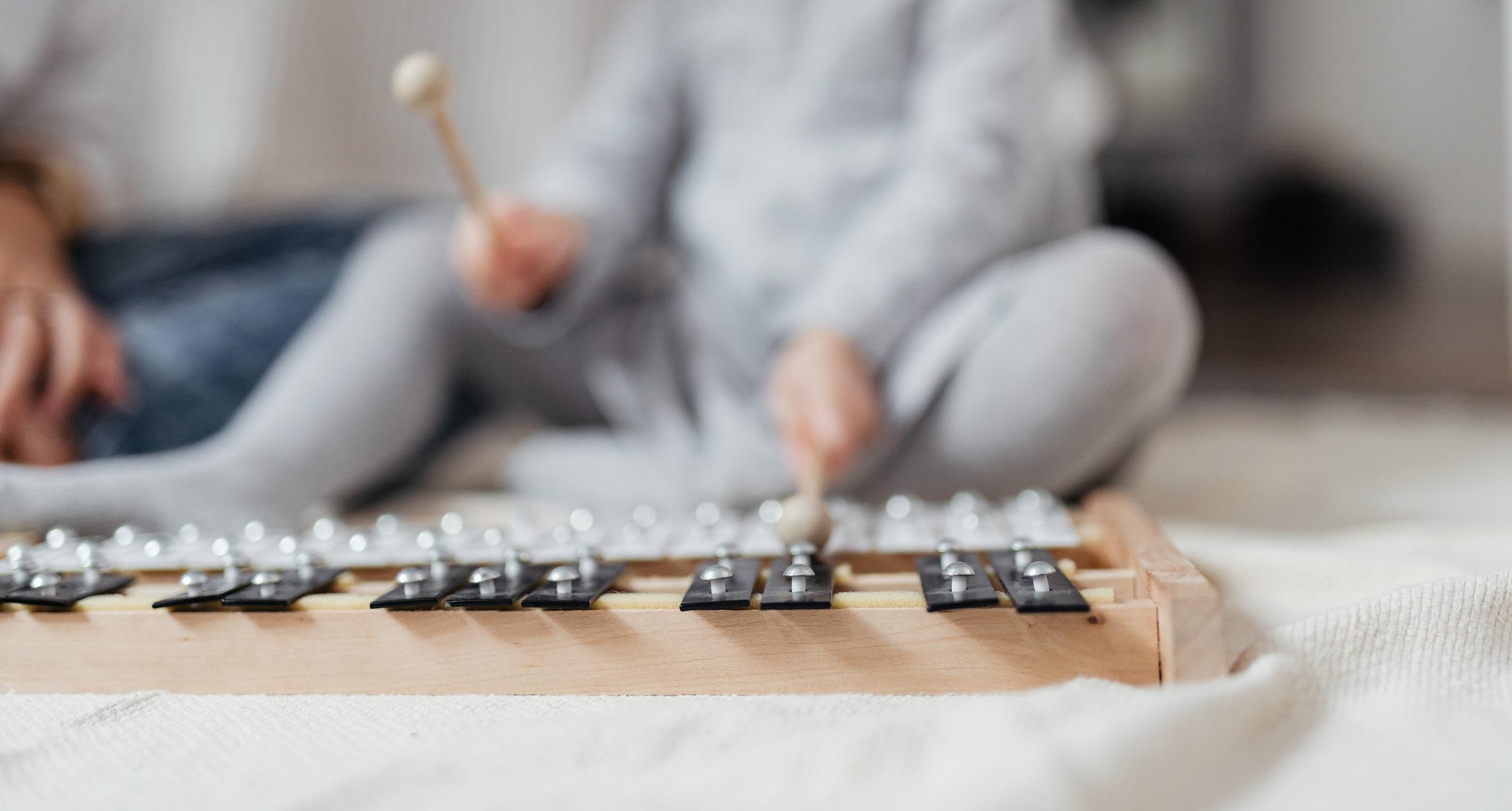


Is Music good for Sensory Development?
2 February 2023
Music is good for sensory development not just because it stimulates hearing but because it builds pathways in the brain. Music is a way of presenting sensory information. Sounds are put into a pattern that pleases or stimulates the listener.
Improves Cognitive Function
Exposure to a range of notes in music helps babies distinguish sounds and identify patterns in their parents’ voices so helps with learning language. It also prompts movement and self-expression.
Music improves cognitive function and helps children with speaking, reading and even maths. It gives them practice in deciphering code. It improves connections between the right and left hemispheres.
Improves Mood
Music affects mood, soothing or energising kids. Listening to music causes the brain to produce endorphins that make kids feel happy. This encourages them to explore the world with their other senses. It can also be calming. Lullabies are used to soothe babies to sleep in different cultures all over the world.
Hearing is developed within the womb from about 25 weeks so babies can enjoy music from the moment they are born. Infants will begin to recognise melodies before they understand words. This brings them comfort, joy and confidence.
Inspires Movement
Like touch, smell and sight, hearing music stimulates children to explore the world and their own abilities through movement. By giving them the impulse to move, music helps with kinesthetic learning and self-expression. Motivating kids to dance helps their movement and co-ordination. Both fine and gross motor skills are involved and improved. Dancing helps the mind and body work together. It increases the pathways made between cells in the brain while listening to music.
Many rhymes like This Little Piggy and Incy Wincy Spider have actions or fingerplay to go along with them which babies love. Bringing the sensation of touch into the experience of the song helps the baby to engage and form connections. Babies love repetition and that helps them learn language more quickly. Silly songs make them laugh. They learn word patterns from rhymes as well as meanings.
Babies can become involved in making music very early on and this makes it even more beneficial. They can start to tap out rhymes and make sounds to a song. This gives them a huge advantage in learning to speak. They need to grip and squeeze a drumstick. Neural pathways between different areas of the brain are created and activated.
Improves Listening Skills
When they are a little older, learning to play an instrument improves kids’ listening abilities. They must decipher tone, pitch and speed then create it themselves. This improves their concentration which is useful in all areas of life.
Music has a unifying effect when listened to with others; this helps cooperation. Dopamine and oxytocin released in the brain while listening to music encourages sharing, empathy and trusting others. Through music children learn that the company of others can bring delight, joy and affection. Music is often a part of social situations and children will recognise the atmosphere as pleasant. They will feel at ease and confident. These are just some of the many ways that music can be beneficial for children’s sensory development.
